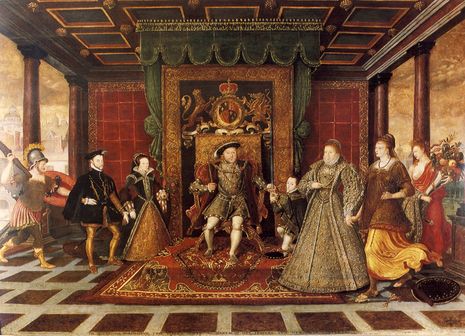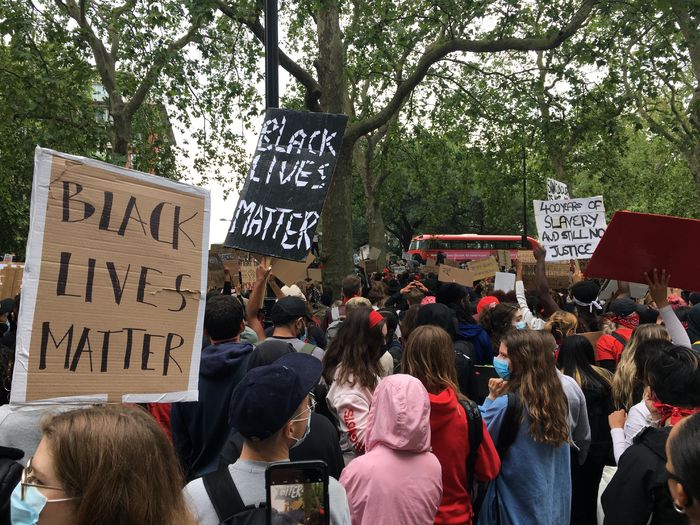The British History Curriculum Needs Total Transformation
Hatty Willmoth argues that, starting from primary school, the history curriculum is jingoistic, uncritical and therefore detrimental to gaining a critical understanding of Britain’s past.

One effect of the Black Lives Matter movement has been to thrust our understanding of history, including British history, into the limelight. As protesters deface and tear down statues, we are being confronted with a legacy of slavery, colonialism, and exploitation which many would prefer to forget. Slave-owners and racists have been put on pedestals for too long, heralded as philanthropists, great political leaders, and local heroes, while their contributions to empire and slavery go unacknowledged.
This culture of forgetting is most systematically enforced in the British education system, where generation after generation has been taught a eulogised version of the nation’s past. The Tudors are used to teach children about a time when English monarchs were strong and glorious, with teaching often structured around exalted personalities like Henry VIII. From the Industrial Revolution, pupils learn about the time when Britain power augmented, leading the world with its so-called ingenuity. The First World War tells students about our great-grandfathers beating of pointy-hatted Germans in muddy trenches, making sacrifices for the greater patriotic good. The Second World War, a pillar of national consciousness and memory, is the focus of countless lessons, assemblies, and school trips. Our curriculum is carefully curated to relentlessly reinforce the story of Britain’s victories and moral superiority. There is no such enthusiasm for the curriculum to include reflection on the atrocities of the British empire.
"As a History student myself, I had to wait until the second year of my degree before I could study imperial systems of oppression..."
At a higher level, studies like that of the Cold War, the Crusades, and the Weimar Republic are told from an overwhelmingly Western perspective. They also frequently paint Britain in a sympathetic light and omit more disturbing parts of the nation’s historical role, such as (to take the previously mentioned examples) the appeasement of Nazism by the British government in the 1930s and complicity in the Vietnam War. Even when students do study the transatlantic slave trade, the focus is deliberately US-centric. It is as if the British were merely outsiders observing these obscenities, until they chimed in to support the abolition movement. Similarly, the Civil Rights Movement is studied as exclusively American history, and we can almost forget that racism unpins the fabric of society on this side of the Atlantic too.
As a History student myself, I had to wait until the second year of my degree before I could study imperial systems of oppression, the role of former colonies in the world wars, struggles for self-determination, processes of decolonisation, neo-imperialist development programmes; to name but a few. Yet, even then, topics were often taught or written about from the point of view of Western empires, rather than colonial subjects themselves. As ever, the curriculum only dared view history through a European lens. Yet most people don’t study history to degree level, and even those taking history degrees must opt-in if they want to learn about the legacy of the British Empire. Knowledge so vital to understanding this country’s place in the world is buried like an obscure family secret, covered up with tales of victory and glory, and kings and queens, and poppies and so-called ‘war-heroes’ like the nation’s beloved Winston Churchill.
"And, while our history of institutional racism goes unacknowledged, it is still played on..."
The British history curriculum teaches its students to be blindly patriotic. Ignorant of the wealth and power garnered by imperial exploitation, we are led to believe that ‘we’ won world wars because of Churchill and our white grandparents. We ignore for example, the contribution of over two and a half million Indian soldiers who signed up to fight in the Second World War hoping to gain national independence in return and the role that colonial rivalry played in Britain’s involvement in both 1914 and 1939. We teach children that we gained power and money through ‘our’ Industrial Revolution, ignoring our exploitation of colonies’ resources and our involvement in the slave trade, from which families were making financial profit until 2015; it was revealed by the Treasury in 2018 that this was when the government finally stopped paying the compensation promised to slave-owners after abolition.
A nation of voters is permitted to act on the fallacy of an invincible, guiltless, independent Britain. When we fail to acknowledge the impact of colonial rule on our previous power, a mirage is created of a Britain that was wealthy and relentlessly victorious all by herself. This imagined “lost Britannia” can then be manipulated in political campaigns, to convince voters, for example, that we would thrive without the support of European trading partners. And, while our history of institutional racism goes unacknowledged, it is still played on and tapped into, like in the Brexit campaign or the media coverage of Black Lives Matter protests. Similarly, when we forget the damage we caused to so many countries across the world, it is easy to brush off international aid or the immigration of those in search of better opportunities as a nuisance to which we bear little responsibility. Systemic racism can be explained away as an American issue, the result of American slavery and a continuation of the American Civil Rights movement, rather than something we need to confront here, in good old Blighty.
Democracy demands education. We must understand our nation’s place in the world and the reasons for this. We cannot keep promulgating this warped vision of Britain; systemic racial inequality, brought to public attention by recent protests, must be understood if it is to be tackled, and it cannot be understood while we refuse to teach such a significant part of our history. We have not always been the heroes, and our determination to forget the less pleasant aspects of our past has real political consequences. We must begin to see real change in education, because the British history curriculum needs total transformation. We’ve kept our skeletons locked away in cupboards for far too long.
 News / Right-wing billionaire Peter Thiel gives ‘antichrist’ lecture in Cambridge6 February 2026
News / Right-wing billionaire Peter Thiel gives ‘antichrist’ lecture in Cambridge6 February 2026 News / Cambridge students uncover possible execution pit9 February 2026
News / Cambridge students uncover possible execution pit9 February 2026 News / Epstein contacted Cambridge academics about research funding6 February 2026
News / Epstein contacted Cambridge academics about research funding6 February 2026 News / Man pleads guility to arson at Catz8 February 2026
News / Man pleads guility to arson at Catz8 February 2026 News / John’s duped into £10m overspend6 February 2026
News / John’s duped into £10m overspend6 February 2026









